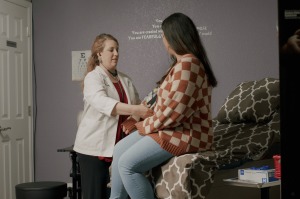Most Americans Find Churches to Have Positive Influence
Most Americans believe the presence of a church is positive for their community, a new study reveals.
In fact, more than half (53 percent) say the church's presence is "very" positive and a quarter say it's "somewhat" positive, the Barna Group found. Only five percent hold an unfavorable view of the church's influence on the community, saying its presence is negative.
Though the younger cohort (those aged 18 to 27) along with atheists, the unchurched and liberals are least likely to hold a favorable view of the church, the new study found that still a majority in each group, except atheists and agnostics, believe the church has a generally positive influence on their communities.
"Churches are perceived to be an important element of a community, even among the unchurched," said David Kinnaman, president of the Barna Group, in the report released Wednesday. "This positive view is partly due to the fact that most unchurched adults are de-churched, or former churchgoers. So, although they may be wary of personal involvement, they have an understanding of the service and assistance that churches can provide to their communities."
He also observed that most Americans who have no religious affiliation or belief "are not overtly hostile to churches."
"Their response is better characterized as benign indifference."
When asked what churches could do to help their communities, the most common answer was helping the poor, which 29 percent of people stated. Fourteen percent listed cultivating biblical values; 13 percent stated serving youth, families and the elderly; and 12 percent listed teaching the Bible and giving spiritual direction.
As to what specific teaching churches should provide, survey respondents said they should instill morals and values as well as cultivate a sense of belonging, show compassion and love toward others, and bring unity to the community, according to the study.
Another service churches can provide is assisting in recovery, providing counseling and support groups, and essentially helping people get their lives back on track. This was listed by 10 percent of surveyed Americans.
Seven percent expect the church to assist the community on financial matters such as helping the unemployed or providing financial assistance or counseling. Only one percent of Americans believe the church should be engaged politically.
Kinnaman concluded from the study that "there seems to be a disconnect for most Americans between serving the community and helping individuals find their way to God through Christ."
"Even among many churchgoers, contributing positively to the community is perceived to be the result of offering the right mix of public service programs," he said. "Yet, this seems to miss an important biblical pattern: you change communities by transforming lives."
Survey results are based upon online interviews conducted in the Barna Group OmniPollSM. A random sample of 1,021 adults was selected from across the United States, age 18 and older, February 10-18, 2011




























